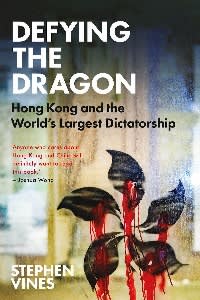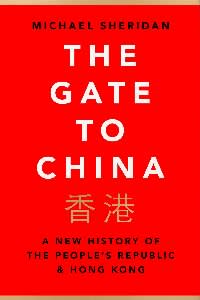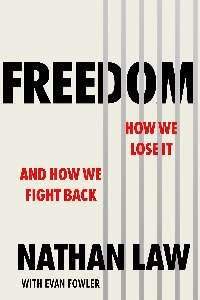Two years ago, when Hong Kong’s anti-government demonstrators staged a sit-in at the international airport, one of them explained what it was about the authorities that he disliked to the journalist and entrepreneur Stephen Vines. “I just wish they’d leave us alone,” the young protester said.
In the grim aftermath of the most recent round of Hong Kong protests — Beijing has imposed a draconian national security law, arrested leading democrats and suppressed most of the freedoms that had been guaranteed until 2047 by international treaty with the British — it is worth asking what would have happened if Chinese president Xi Jinping had indeed simply left Hong Kong alone to enjoy its promised “high degree of autonomy”.
The answer suggested by three recent books is: not very much. That is, Hong Kong could have continued to thrive as a financial centre and as a free, noisy and culturally energetic city that is at once Cantonese, Chinese and international.
Yet China, which under Xi is now openly asserting its military and economic power and challenging the west in Asia and beyond, chose the path of greatest resistance by deciding to crush dissent in Hong Kong. All the demonstrations — including the peaceful march in June 2019 by an estimated 2m of the city’s 7m people, young and old, rich and poor, that is reckoned to be among the largest mass protests in history by share of population — were reactions to attempts by Beijing and its fatally inept Hong Kong proxies to restrict freedoms and ensure that the promise of meaningful universal suffrage was never fulfilled.
“[L]eaving citizens to their own devices is not the way of the Chinese Communist party,” concludes Vines in Defying the Dragon. After the book was published, Vines himself fled Hong Kong for the UK because of what he called a “white terror” sweeping the city.
A common theme of the books considered here — the other two are Michael Sheridan’s The Gate to China, an authoritative history of Hong Kong and its relations with the UK and China; and Nathan Law’s Freedom, a first-hand account of the democracy movement from the youngest person elected to the territory’s legislative council — is how first the British and then the Chinese Communists repeatedly failed to consider the opinions of Hong Kong’s people. Both mother countries patronisingly assumed that Hong Kongers cared only about money, not freedom.
This failing meant that more than a century of British rule infected Hong Kong with the virus of freedom and an appreciation for the rule of law without allowing anything close to full democracy or self-determination (despite the belated democratising efforts by Chris Patten, the last British governor). It also meant that neither Chinese leaders in Beijing nor the business and civil service elite that do their bidding in Hong Kong ever understood the attitudes and desires of ordinary Hong Kongers.
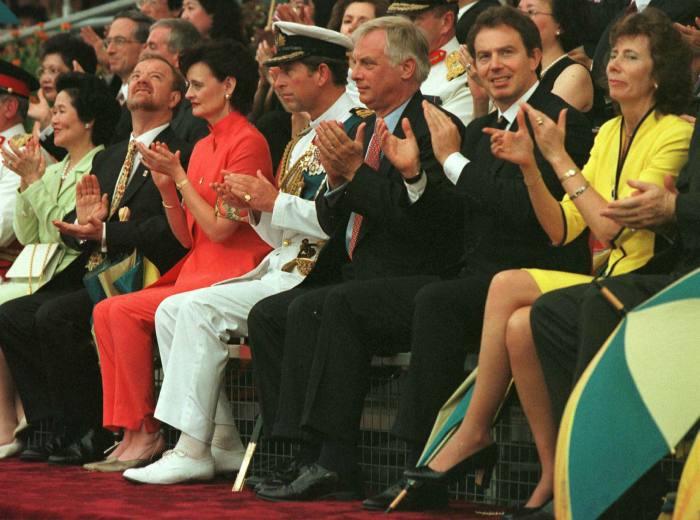
Surveys and anecdotal evidence have shown consistently strong support for the demonstrators, even after the protests turned violent and led to vicious clashes with the police, and after the favoured slogan became: “Liberate Hong Kong, Revolution of Our Times!” As late as December 2019, six months before Beijing introduced its security law late at night without informing even its own surrogates in Hong Kong, democrats won a landslide victory in the territory’s district elections to the astonishment of the Communist party.
Chinese leaders have long claimed that Hong Kong’s troubles are the work of malign foreign agents, including the US and the UK, but what these books demonstrate is that this was a homegrown uprising inflamed by Beijing’s refusal to accept the continued autonomy of Hong Kong or the spirited claims of its people to their own identity.
When the authorities forced the closure in June this year of the best-selling Apple Daily, an irreverent Cantonese paper established by the tycoon Jimmy Lai, they accused it of colluding with foreign forces. But the real reason the paper was hated in Beijing — and Lai himself jailed — was exactly the opposite: it was a quintessentially Hong Kong product that appealed to locals, who flocked to buy its final edition. Very few foreigners were able to read the paper, let alone influence it.
The turn from Chinese official laissez-faire in Hong Kong to counterproductive intervention began a decade after the handover by Britain of its colony in 1997. The 2008 Beijing Olympics were a high point for Beijing-Hong Kong ties, with many Hong Kongers feeling well-disposed towards the mainland and even identifying themselves as patriotic Chinese. After that, relations began to sour as Xi rose to power from 2012 and took an increasingly Stalinist approach to dissent.
Sheridan, whose book spans the whole history of Hong Kong, in contrast to the others’ focus on recent events, is the most even-handed of the three authors. He not only examines the views of Hong Kongers and the British but also analyses with a wealth of documentary evidence the motivations of Chinese leaders in seeking to reverse historical humiliations, including the 19th century opium wars that “inflicted a wound on the Chinese psyche that has yet to heal”.
Many outsiders, he suggests, have been wishful thinkers who underestimated the determination of Chinese Communist leaders to reclaim Hong Kong, and overestimated the reformist tendencies in the party. China under Deng Xiaoping developed the “one country, two systems” formula for easing the incorporation of Hong Kong into the nation, not to preserve freedom and the rule of law in Hong Kong but to allow capitalism to flourish there for the benefit of China’s rapid industrialisation. The idea, in other words, was to allow economic divergence, not social and political autonomy.
Even the Beijing Olympics were not what they seemed. “The Games were a watershed, but not in the way imagined by foreign diplomats, who argued they would engage China with the world and promote reform,” writes Sheridan. “In fact, the Olympics achieved the opposite. They were a gift to the party’s authoritarians, who rebuilt the national security state on the pretext of guarding the Games against terrorism . . . From then on Chinese politics and attitudes to the outside world would take on a harder tone.”
Law, now living in exile in the UK, was on the receiving end of that hardness. His short, heartfelt primer on Hong Kong’s recent unsuccessful struggle for freedom and democracy is further proof that this was very much a homegrown phenomenon triggered by Beijing’s attempts to restrict the freedoms to which the city’s inhabitants had grown accustomed.
The moderate and thoughtful Law, who is nothing like the radical agitator of Beijing’s imagination, quotes Václav Havel, the former Czech president, on how he never set out to be a dissident but was pushed into it simply because he did what he felt he had to do. For Law, “1997 increasingly came to be seen not as a ‘return to the motherland’ — a motherland, it should be added, that neither spoke our language, respected our values nor acknowledged our history — but as the replacement of one colonial power with another that is less tolerant, less liberal and even less accountable”.
The son of a construction worker, Law was born in Shenzhen just over the border in Guangdong province and moved to Hong Kong at the age of six. He was looked after by his mother and became a student leader. Elected at the age of 23 to the legislative council in 2016, he was later deposed on contentious procedural grounds along with other democrats by pro-Beijing politicians who feared losing their dominance in the legislature. “It is easy to forget how hard-fought and fragile our freedoms really are,” he writes wistfully from London.
Vines, who made Hong Kong his home for more than three decades, defends Hong Kong’s freedoms and values with as much passion as Law. He is scathing about the establishment figures, such as the current chief executive Carrie Lam, who have grovelled to Beijing and failed to stand up for Hong Kong’s people while preparing their own escape routes with Canadian or British passports and often caches of money and property overseas.
There is agreement among the authors that China is communist only in name and political structure — for Law, power is wielded as authoritarian “ethno-nationalism”; for Vines as “a form of hyper-nationalism mixing patriotic pride with xenophobia” — and that Beijing’s handling of the Covid-19 pandemic, complete with cover-ups and resistance to investigations by the World Health Organization, showed how little it had learned since the outbreak of Sars in 2002.
Vines, however, stands out by finding grounds for optimism. Whereas Law laments the spread of China’s authoritarian influence around the world and describes Beijing’s treatment of Hong Kong as an ominous “warning to the free world”, Vines says Beijing’s neurotic response to Hong Kong has actually emphasised the fragility of the Chinese model. He notes that the Soviet Union, Communist China’s original mentor, collapsed not from the Russian centre but from its periphery of subjugated territories in eastern Europe, and he reckons Hong Kong had its “Prague Spring moment” in 2019.
Beijing’s crackdown on Hong Kong has certainly bolstered those in Taiwan who reject the idea of their island being absorbed into China under the “one country, two systems” formula, and strengthened anti-China sentiment globally. Beijing was so flagrant in breaching its international treaty obligations to Hong Kong that the previously reluctant UK government has granted a path to citizenship for 3m Hong Kongers.
Vines says Beijing’s endgame in Hong Kong, which involves forcibly integrating the territory into southern China and extinguishing “all remaining embers of liberty” is “an improbable combination of the terrifying and the unrealistic”. China’s leaders, he writes, “really believe that it is possible to have ‘Hong Kong without Hong Kong characteristics’. But Hong Kongers themselves may yet prove them wrong.”
Unfortunately, even those who hope Vines is right — he says all dictatorships seem impregnable until the moment they collapse — fear that this is just one more example of wishful western thinking about a rising China.
The Gate to China: A New History of the People’s Republic and Hong Kong by Michael Sheridan, William Collins £25/OUP $29.95, 512 pages
Freedom: How We Lose It and How We Fight Back by Nathan Law with Evan Fowler, Bantam Press £12.99, 240 pages
Defying the Dragon: Hong Kong and the World’s Largest Dictatorship by Stephen Vines, OUP $29.95/Hurst £20, 352 pages
Victor Mallet is the FT’s Paris bureau chief and former Asia editor
Join our online book group on Facebook at FT Books Café
More on Hong Kong and China . . .
Hong Kong’s ‘loyal critic’ faces tough test as Beijing targets media

Media mogul Yu Pun-hoi treads carefully between mollifying China and hanging on to readers
Hong Kong’s legal system bears the scars of security law
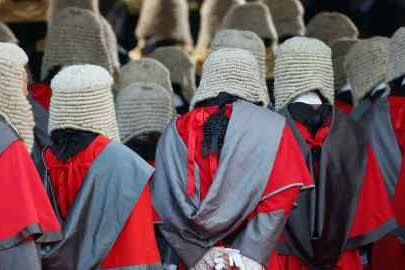
One year on, long-cherished norms such as the right to bail and trial by jury are under attack
Credit: Source link




